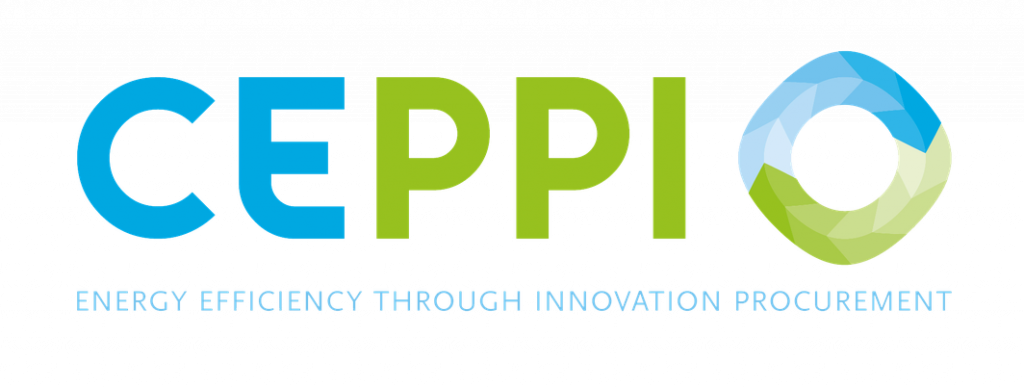CEPPI


This project has received funding from the European Union’s Horizon 2020 research and innovation programme under grant No 649720. The sole responsibility for any errors or omissions made lies with the editor. The content does not necessarily reflect the opinion of the European Commission. The European Commission is also not responsible for any use that may be made of the information contained therein.
This project has received funding from Executive Agency for Small and Medium-sized Enterprises (EASME) under the European Union’s Horizon 2020 research and innovation programme.
„Coordinated energy-related PPIs actions for cities (CEPPI)”
(acronym: CEPPI)
Total cost:1 294 812,50 EUR
EU Contribution: 118 562,50 EUR
Duration: 01/04/2015 – 31/03/2018
Project Leader: Birmingham City Council
Project Manager (WRC EIT+): Joanna Kot
Project Consortium:
- Birmingham City Council – Consortium Coordinator
- Budapest Fovaros Onkormanyzata (Municipality of Budapest)
- Ajuntament de Castelló de la Plana (Municipality of Castellon)
- Fundación de la Comunitat Valenciana para la Promoción Estratégica, el Desarrollo y la Innovación Urbana
- Wrocławskie Centrum Badań EIT+ Sp. z o.o.
- JERA Consulting Limited
- Optimat Limited
- Steinbeis GmbH & Co. KG für Technologietransfer
- ICLEI European Secretariat GmbH
CEPPI – Coordinated energy-related PPIs actions for cities – aims to build capacity in cities on how to achieve more sustainable energy solutions through a pro-innovation procurement approach. The five cities involved in this project – Birmingham (UK), Budapest (Hungary), Castelló & Valencia (Spain) and Wrocław (Poland) – will intervene in scheduled public tenders to save at least 33GWh/year through a suitable optimization of the prepared tender procedures.
An introduction to the project Ceppi (Coordinated energy-related PPI actions for cities) was a project called PPIA (Public Procurement of Innovation in Action). The main objective of the PPIA project is to stimulate innovation in the area of public procurement with particular emphasis on climate change mitigation and dissemination of knowledge acquired on this subject matter in the community of the Climate-KIC Association and beyond. The project PPIA is still carried out within the framework of the Climate-KIC Association that brings together more than 240 partners, including the most significant European universities, research institutes, and companies.
The objective of the first stage is to identification of areas with the greatest energy consumption where energy consumption can be significantly reduced with relatively little effort. Energy audits will provide a report predicting the target energy demand of a given project. The next aim is to develop and implement a practical procurement support programme that will build organisational capacity in city authorities in smart, sustainable, innovation procurement through action learning activities and thus progressively influence their procurement. Finally, at least one PPI project in each of the five cities will be implemented with the combined potential to reduce energy consumption by at least 33 GWh/year.
The project will go beyond buying ‘best available’ sustainable solutions and demonstrate how procurement practices can, in addition, stimulate progressive improvements in energy efficiency and stimulate the development of innovative solutions.


